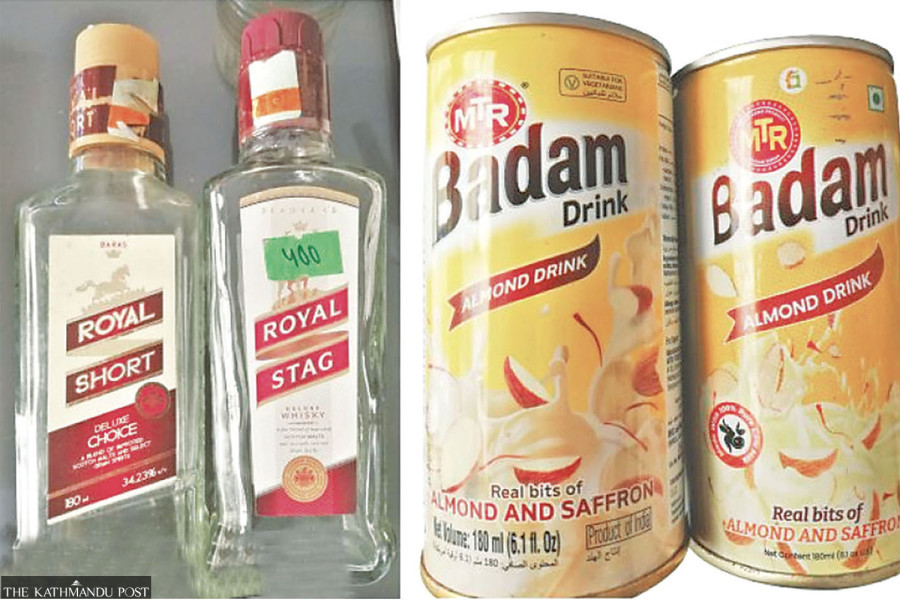Editorial
Whither IP rights?
Even as intellectual property rights violations put off investors, they also often harm Nepali consumers.
The line between legitimate brands and their imitations is often blurred in Nepal. This infringement of brands ranges from copying logos and trademarks of global companies to other forms of duplication. Certain fraudulent businesses are leveraging the brand equity of globally known names for their benefit. As these products resemble well-known brands, companies copying them have to invest less in marketing and branding. The copycat products’ supply chain is strengthened, as many Nepalis rarely question their origin before buying. Despite being largely ignored or trivialised through short-lived social media humour in Nepal, these counterfeit goods or businesses have impinged on the country’s international image.
According to the Department of Industry, complaints related to trademark violations surged by 74 percent in fiscal year 2023–24, rising to 1,637 cases, from 941 the previous year. However, it doesn’t reveal the whole story, as a large portion of the population remains unaware that the operations of such businesses constitute a violation of intellectual property rights, a fundamental right. This is partly because the legal mechanism in place was the outdated Patent, Design and Trademark Act, 1965, which was ineffective in dealing with current problems. So the government is thus in the process of bringing a new law to strengthen intellectual property rights protections. The Ministry of Industry, Commerce and Supplies has thus prepared the Industrial Property (IP) Bill, which the Cabinet is reviewing. It will, if enacted, create a dedicated office to manage intellectual property issues such as patents, trademarks, and industrial designs. However, despite its importance, the Cabinet has been sitting on the bill since January.
The country has made several failed attempts to formulate a new law. The draft bill on trademark, copyright, and intellectual property rights was prepared in 2019, but its functioning was impeded by frequent government changes. This negligence allowed illegal, mimic businesses to flourish over time, contributing to Nepal’s woeful 108th rank among 132 countries surveyed for the Global Innovation Index 2023 report by the World Intellectual Property Organisation. Some of these businesses have even become successful. For example, a Nepali firm, Krispy Krunchy Fried Chicken, has adopted the nearly identical acronym KKFC by adding just one letter to the well-known KFC brand. While KFC is registered in Nepal, it has not received protection guaranteed by the constitution. Such disregard for a globally recognised company’s intellectual property and piracy creates an unfavourable environment for foreign direct investment. Further, when such illegitimate cases emerge, the original brand owners are often wrongly blamed for the consequences for low-quality imitation products. The rapid appearance of knock-off products before an original brand can establish itself also discourages local entrepreneurs from putting money into start-ups.
While it is essential to focus on the disadvantages to investors, we must also understand what brand infringement is doing to Nepali consumers. When lookalike businesses are not held accountable, they confuse consumers, and their cheap prices compared to the originals make them more attractive. This leads to the widespread use of low-quality counterfeit goods, which can have severe health consequences, especially when it comes to consumables and cosmetics. This in turn violates the consumer right to quality products at a fair price. Instead of empowering them, continuing government neglect has reduced Nepalis to the status of passive consumers. So rather than dilly-dally on the new bill, the state must ensure a marketplace driven by fair competition, one that attracts and protects legitimate businesses. On the line is Nepal’s status as a credible business destination.




 8.54°C Kathmandu
8.54°C Kathmandu














